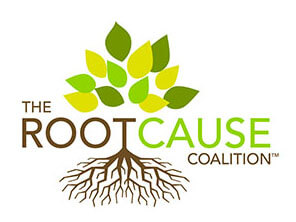Majority of Americans Believe Gun Violence is a Very Significant Issue
Majority of Americans Believe Gun Violence is a Very Significant Issue
The Root Cause Coalition, in Collaboration with Acenda Integrated Health, Underscores the Significance of Safety as a Public Health Issue.
(Washington D.C.) — While about two-thirds of Americans feel generally safe going about their daily routines, significantly more Whites (36%) compared to Hispanics (19%) feel very safe. And among those who feel somewhat or very unsafe, 1 in 5 said that neighborhood violence was their top reason for feeling this way; next was car traffic and related hazards (17%) trailed closely by neighborhood gun violence (15%). Nearly 9 in 10 individuals say that gun violence in the United States is at least a somewhat significant issue; over half (51%) say it’s very significant.
Sadly, nearly one-quarter of Americans (24%) report that they or someone close to them has been affected by gun violence. The numbers are even greater for specific demographics: 40% of Blacks report this, 37% of parents, 32% of those under 45 years of age and 32% of those living in urban areas. Perhaps unsurprisingly, then, 40% also say they hear about gun violence in their community more since the COVID-19 pandemic, with only 16% reporting that they hear about it less.
“Not a day goes by without hearing about gun violence in this country and its devastating effects on individuals, families and communities. This data underscores why addressing this issue must be a priority and considered one of the most pressing public health issues of our time,” said Barbara Petee, President of The Root Cause Coalition.
But most individuals (74%) believe there are actions society can take to help prevent gun violence. This is especially true when comparing college educated (84%) to non-college educated individuals (69%). Importantly, Americans prioritize improving the involvement of law
enforcement to reduce gun violence – with those over 65 years of age feeling particularly strong about this (48% compared to 24% of those under 45).
And when it comes to what interventions could help prevent gun violence, individuals cite a multitude of actions. Top cited actions include improved relationships between communities and law enforcement (78% said it was very important), followed closely by local policies to create safer neighborhoods (74%) and opportunities to engage youth after school (74%). Certain actions were significantly higher if affected by gun violence including economic investment and better paying jobs.
But when asked to consider the next five years, individuals are significantly more hopeful for the well-being of themselves, and their families, compared to the country overall. Higher income earners and parents tend to be significantly more hopeful in all categories: individuals, their families, and the country.
"Conducting this national survey was such an important collaboration between Acenda and The Root Cause Coalition. Incidents of gun violence have risen across the country, and data like this will help us to better understand not only the public perception of the issue, but how engaged stakeholders can more strongly advocate for necessary resources. The voice of the community has to be heard in order to help reverse this deadly trend," said Melissa Fox, MHA, FACMPE, FACHE, Chief Operating Officer of Acenda Integrated Health.
Methodology
1,000 interviews among adults age 18+ were conducted from February 3-8, 2022 using an online survey. The results were weighted to ensure proportional responses. The Bayesian confidence interval for 1,000 interviews is 3.5, which is roughly equivalent to a margin of error of ±3.1 at the 95% confidence level. The Root Cause Coalition Co-founded by AARP Foundation and ProMedica in 2015, The Root Cause Coalition is a non-profit member-driven organization comprised of more than 90 leading health systems, hospital associations, foundations, businesses, national and community nonprofits, health insurers, academic institutions, local governments, and policy centers. Our common goal is to achieve health equity for every American.
Please click here to view the full report.
